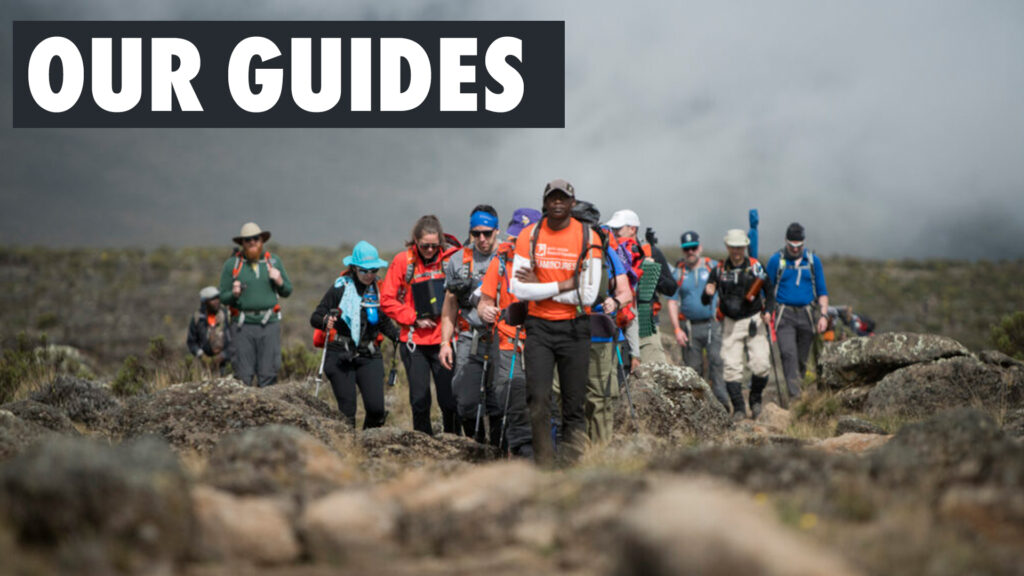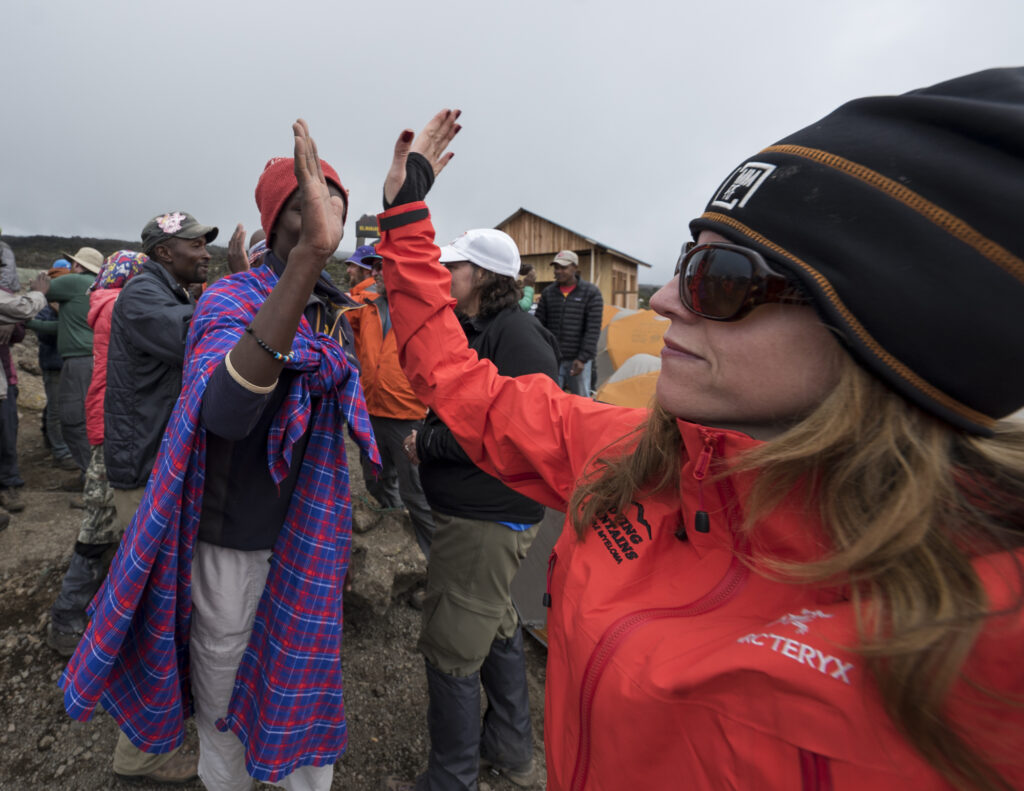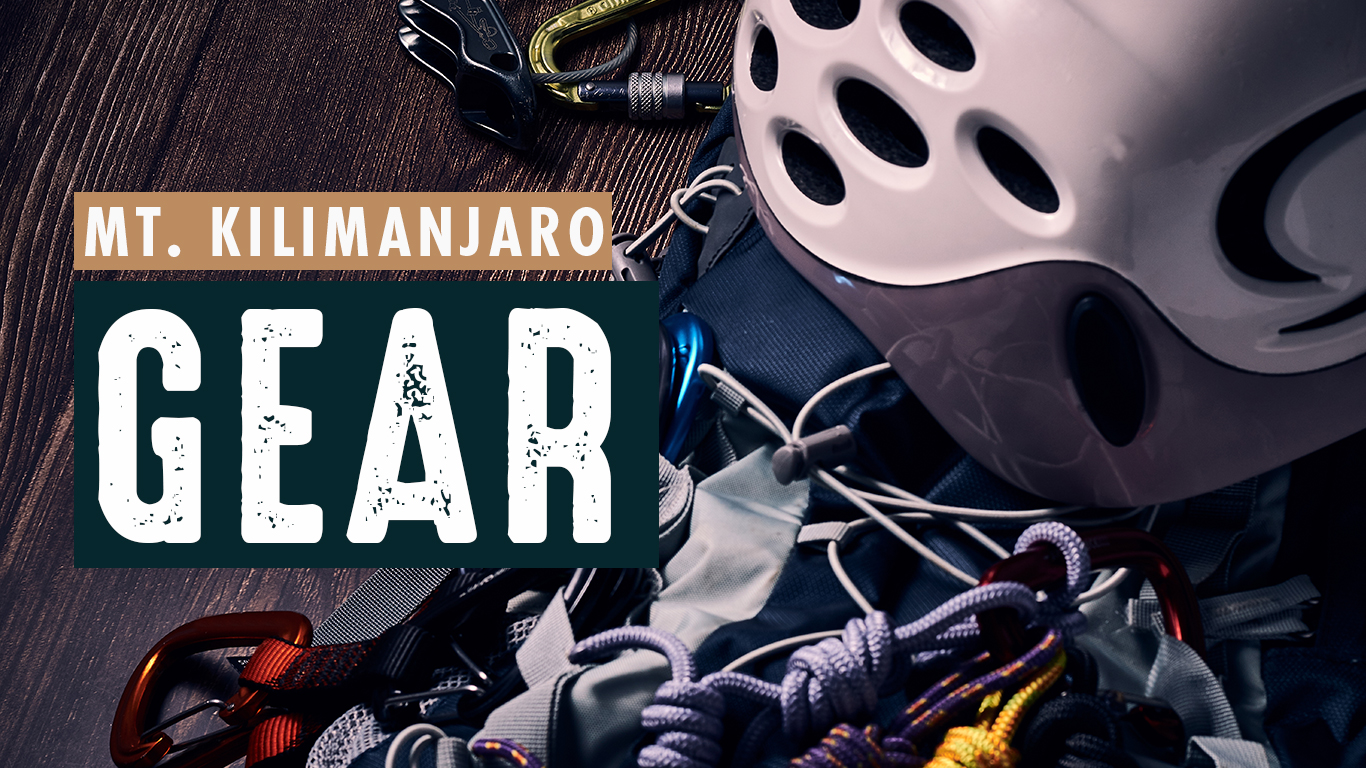
When you’re embarking on a Kilimanjaro adventure with a group, the guides step in as your trusty companions, wearing many hats to make sure your journey is as smooth as possible. They kick things off by carefully planning out the route and daily plans, taking into account things like acclimatization, weather, and the group’s unique vibe. As you make your way up, they’re not just showing you the way, but also keeping a watchful eye on everyone’s safety and well-being.
Guides are not only experts in route-finding but also serve as vigilant guardians of the group’s safety and well-being. They are trained to identify early signs of altitude sickness and other health concerns, constantly monitoring vital signs and providing crucial advice on hydration and nutrition.
Maintaining a steady and manageable pace is another pivotal responsibility of the guides. This deliberate pacing helps conserve energy, enhance acclimatization, and promote a gradual ascent. All of the guides speak English, so you don’t have to worry. They strategically incorporate rest days and adopt a gradual approach to higher altitudes, reducing the risk of altitude-related issues. Yet their role goes beyond mere logistics and safety; guides are also the heartening force behind the group’s morale. They offer words of encouragement, motivation, and support, particularly during the most demanding phases of the climb.
Throughout the journey, guides coordinate the practical aspects of the expedition, from organizing campsites and preparing meals to distributing equipment. They work closely with porters to ensure that the group’s needs are met efficiently. In emergencies, guides are equipped with the skills and resources to respond effectively. They carry comprehensive first-aid kits and are trained to manage situations ranging from altitude-related discomfort to injuries and other medical concerns.

But they’re not just guides, they’re storytellers too! They love sharing fascinating tidbits about the local culture, wildlife, and all the unique wonders of Kilimanjaro. It adds a whole new layer of meaning to your climb. Beyond their technical and storytelling skills, guides foster a positive group dynamic. They encourage teamwork, camaraderie, and mutual support among the climbers.
On summit day, guides play a pivotal role in the final ascent. They carefully monitor the group’s progress, ensuring a safe and successful climb to the summit. This includes managing the physical and emotional well-being of each climber. Guides also possess a profound understanding of Kilimanjaro’s weather patterns and conditions. They make informed decisions based on real-time information, prioritizing safety above all else.
Ultimately, guides serve as ambassadors of responsible climbing practices. They advocate for ethical behavior, including adherence to Leave No Trace principles and a respectful approach to the environment. Their expertise, leadership, and support are invaluable assets to any Kilimanjaro climbing experience.







